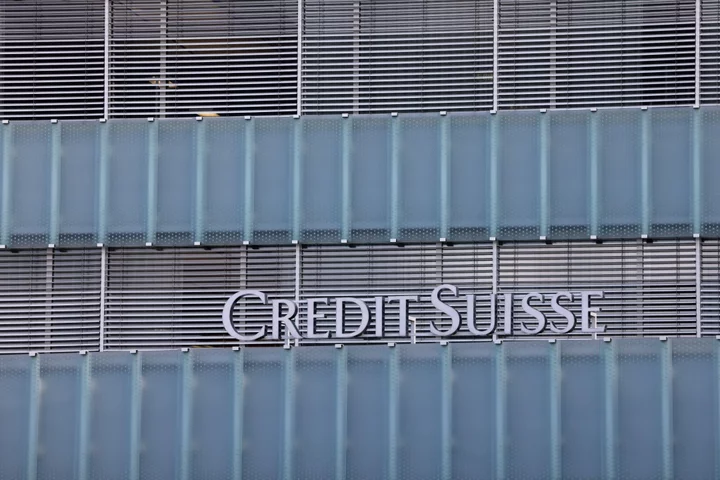Credit Suisse is one of a handful of global banks publicly disclosing some loans to poor countries, as most of the rest of the industry instead clings to secrecy, according to a fresh study.
The Swiss bank, which was absorbed by UBS Group AG in a government-engineered takeover earlier this year, stands out for its relative transparency around such lending, according to research by UK nonprofit Debt Justice, which looked at multiple data sets spanning the past half decade and through the first half of 2023. The only other bank found to provide similar disclosures was Mitsubishi UFJ Financial Group, the analysis showed.
Since 2021, global banks have kept a lid on about $37 billion of loans to sovereigns in the developing world, according to researchers at Debt Justice. The lack of visibility follows 2019 guidelines, known as the Voluntary Principles for Debt Transparency, which were backed by global banks and ushered through by the Institute of International Finance.
The goal of the principles was to help monitor the link between poor countries and their creditors, in order to help support sustainable lending and fight corruption. In all, however, global banks have only disclosed a total of $2.9 billion in loans since the voluntary principles were agreed, Debt Justice said.
“It’s a shocking failure of this voluntary approach that banks have been able to sign up for these principles and ignore them for the last four years,” said Tim Jones, head of policy at Debt Justice.
The study comes as the overall debt burden of developing countries swells. The portion of external public debt owed to private creditors stood at 62% of the total in 2021, the most recent year for which data is available, according to research by the United Nations Conference on Trade and Development. African debtor nations now pay more in interest than they do on education or health programs, UNCTAD said.
The growing dominance of private credit in some of the world’s most vulnerable sovereign debt markets has led to calls for a recalibration. That’s as many of the world’s poorest countries face increasingly heavy financial burdens as they deal with the fallout from climate change.
Greater transparency won’t solve existing debt crises, but it can help prevent new ones, Debt Justice said. Full disclosure of borrowing and lending “enables money to be tracked, loans to be held to account, and also hopefully delivers lower interest rates for governments as well,” Jones said.
Debt Justice said its research indicates that about 19 banks are withholding information on loans to vulnerable nations, including Standard Chartered Plc, Societe Generale SA and Deutsche Bank AG. The estimates are based on those banks’ involvement in syndicated lending to low-income governments, according to Debt Justice’s analysis of figures from Loan Radar, a data provider.
Spokespeople for Credit Suisse, MUFG, Societe Generale and Deutsche Bank declined to comment. Shaun Gamble, executive director of group media relations at Standard Chartered, said “our participation in any transaction, or relationship with a client, remains confidential.”
Sonja Gibbs, head of sustainable finance at the Institute of International Finance, said the institute and its members have “championed the principles of greater debt transparency” and have a “vested interest in supporting debt sustainability.” But without public sector creditors and borrowing countries being “fully on board,” greater transparency is “simply not possible,” Gibbs said.
Banks, governments and other lenders have been stung in the past by hidden loan contracts. Credit Suisse is still dealing with the legal aftermath of its role in the so-called tuna-bond scandal in Mozambique. This month, the bank lost its bid to block an impending trial over allegations of wrongdoing, after a UK high court judge ruled that the $2 billion case should proceed.
In 2017, Republic of Congo saw its debt-to-GDP ratio soar by over 50% overnight as the International Monetary Fund learned of previously hidden loans from commodity traders, impacting the country’s credit rating and access to fresh funds.
“The only way banks will disclose loan information is if they are made to by legislation or regulations,” Jones said. “It’s time for governments to realize they need to actively regulate the banks to make them disclose this information.”

